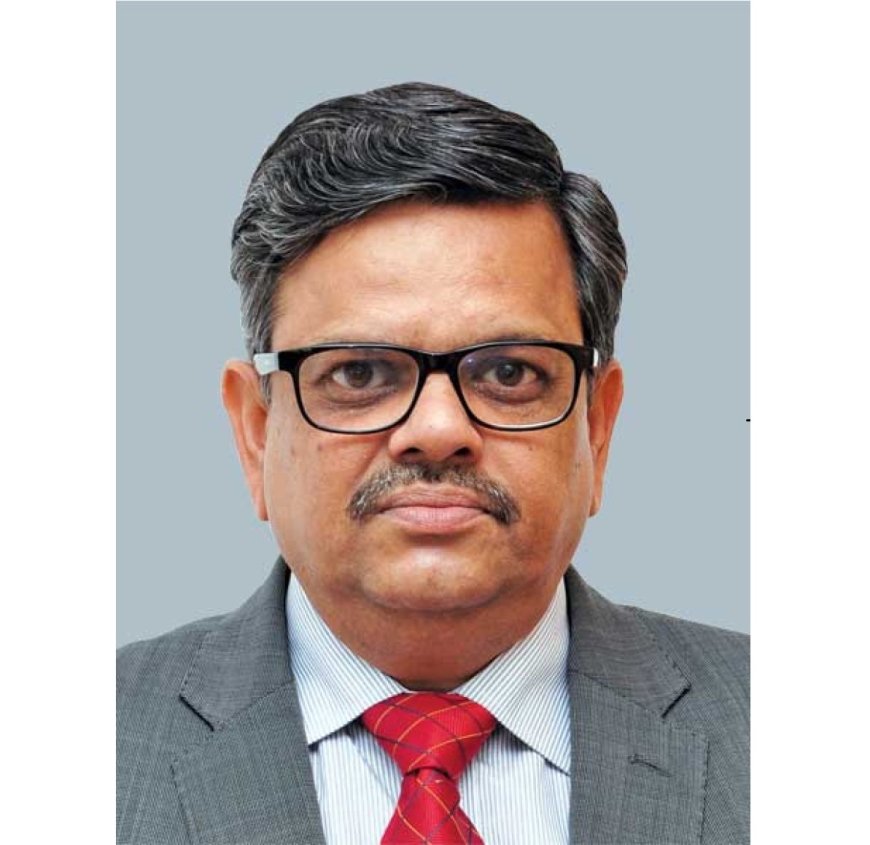India is progressing ahead with Metro, Road and Hydro underground tunnel construction projects at a faster pace
Herrenknecht is the technology leader in mechanized tunneling and the only company that supplies tunneling machines for all ground conditions in a diameter range from 0.10 to 19 meters.

Tell us about your company’s India operations, products and services for this market?
Herrenknecht is the technology leader in mechanized tunneling and the only company that supplies tunneling machines for all ground conditions in a diameter range from 0.10 to 19 meters. We offer our customers a complete portfolio of mechanized tunneling technology, additional equipment and services and therefore, complete project-specific solutions: we call them Full Range Solutions. Herrenknecht TBMs are specially configured for geologies comprising hard rock, soft ground and mixed-face conditions, with high overburden and high ground water pressures.
Herrenknecht is currently the only Global TBM Manufacturers to have established a permanent manufacturing/ refurbishing/rebuilding facility in India since 2007, which in 2021-22 has been further expanded to support ever growing demand of TBM’s in India. Herrenknecht has been an undisputed preferred TBM supplier in India, having supplied more than 75 TBM’s for construction of more than 200kms of tunnels across Metro, Hydropower, Rail and water supply projects. These TBM’s are supported by a large pool of locally trained TBM specialists in India (mechanic, hydraulic, PLC, electrician, operator) to guarantee best possible service around the clock at optimum costs.
What are the major projects underway for your company?
Presently, our five TBM’s are under operation in Bengaluru Metro Phase-II. Maintaining the leadership position in Indian TBM market, several TBM’s are now being rebuilt/ newly manufactured at our State-of-Art manufacturing facility in Chennai and customer facilities, which will be deployed in upcoming CMRL Phase-II, DMRC Phase-IV, Kanpur and Agra Metro Projects in 2022-23.
Apart from these Metro projects, we are proud to have recently supplied two units of Double Shield Hard rock TBM’s for Pakal Dul Hydro Power Project in J&K. Each of these TBM’s will bore approx. 7.5km twin tunnels in a challenging geology.
Making its first, Herrenknecht supplied two units of Single Shield Hard Rock TBM’s to Rishikesh-Karnprayag railway tunnel project in Uttarakhand. These machines are presently under commissioning and will bore approx. 10km each for RVNL’s prestigious railways tunnel project.
The various methods for tunneling have their advantages and limitations. As a leading manufacturer of TBMs, what is the machine’s versatility, cost-effectiveness and performance advantages in all strata?
Modern tunnel boring machines and construction technologies make it possible to build routes that run very close to ideal lines, bringing a real breakthrough for routes that would have been inconceivable in the past. The machines used are always designed for the purpose in question in each case depending, for example, on the geology, hydrology, the diameter or the construction site circumstances.
In comparison to other methods, the potential environmental impacts in terms of noise, dust and visual on sensitive receives are significantly less, and are restricted to those located near the launching and retrieval shafts. Compared to the cut-and-cover approach, disturbance to local traffic and associated environmental impacts and the quantity of C&D materials generated, are much reduced. To summarize, TBM tunneling is best known alternative for projects which are timebound, critical & have most challenging geological conditions.
How does your company differentiate itself from other players in the industry in terms of technology?
Construction of tunnels, as we all know, requires a great degree of expertise, knowledge, experience and technological solutions to cope with unforeseen geological challenges. We consider ourselves as pioneers in underground construction, having unmatched experience, innovative engineers, and technological advantages over our competitors. We provide perfectly coordinated jobsite services, qualified personnel, high quality German design and quality TBMs, excavation tools and spares.
Herrenknecht supplies locally made metro sized TBM’s, which has potential advantages for our customers as they allow savings in Customs Duty, freight, taxes, delivery times, foreign exchange outflows and its variations, thus giving comfort from getting TBM’s from India. The other advantages being, after sales service and parts support from India. Herrenknecht also offers Rebuilding/Re-manufacturing opportunities in OEM workshop for customers who wants to use their TBM’s again and again.
How do you foresee the future of TBMs in India?
India is progressing ahead with Metro, Road and Hydro underground tunnel construction projects at even a faster pace and is now among one of the biggest economies of the world and currently ranked 2nd largest TBM market in the world. Due to this increase in demand for better, efficient, and modern urban transport, which should at par with world, the investment in infrastructure is rising rapidly. Major chunk of TBM tunnelling growth is expected in Metro segment, with many of Tier 2 & 3 cities planning to launch metro rail / Semi-High Speed Rail projects, which will involve significant urban tunnelling.
What is the advice and support you would like to seek from the government in the operation of TBM?
Herrenknecht is currently the only TBM supplier having a dedicated manufacturing facility for TBM production in India since last 15 years. But due to imports of TBM’s mainly from China, manufacturing TBM’s is India is not attractive enough commercially or organically. One of the main reasons for this is lower/marginal Customs Duties levied on imports and easy access to cheap and used component available around the world.
This encourages buyers to prefer imported TBM’s which increases project risk due to sub-standard equipment being imported and dumped into Indian market. Therefore India needs a long term and strategic vision towards import substitution of such high value and critical equipment used for various tunneling projects in India. Also the upcoming tenders and projects should encourage Make in India TBM’s so that other manufacturers also set up dedicated facilities in India for long term support. This will also save India hard earned and crucial foreign exchange outflow.
Hits: 4








